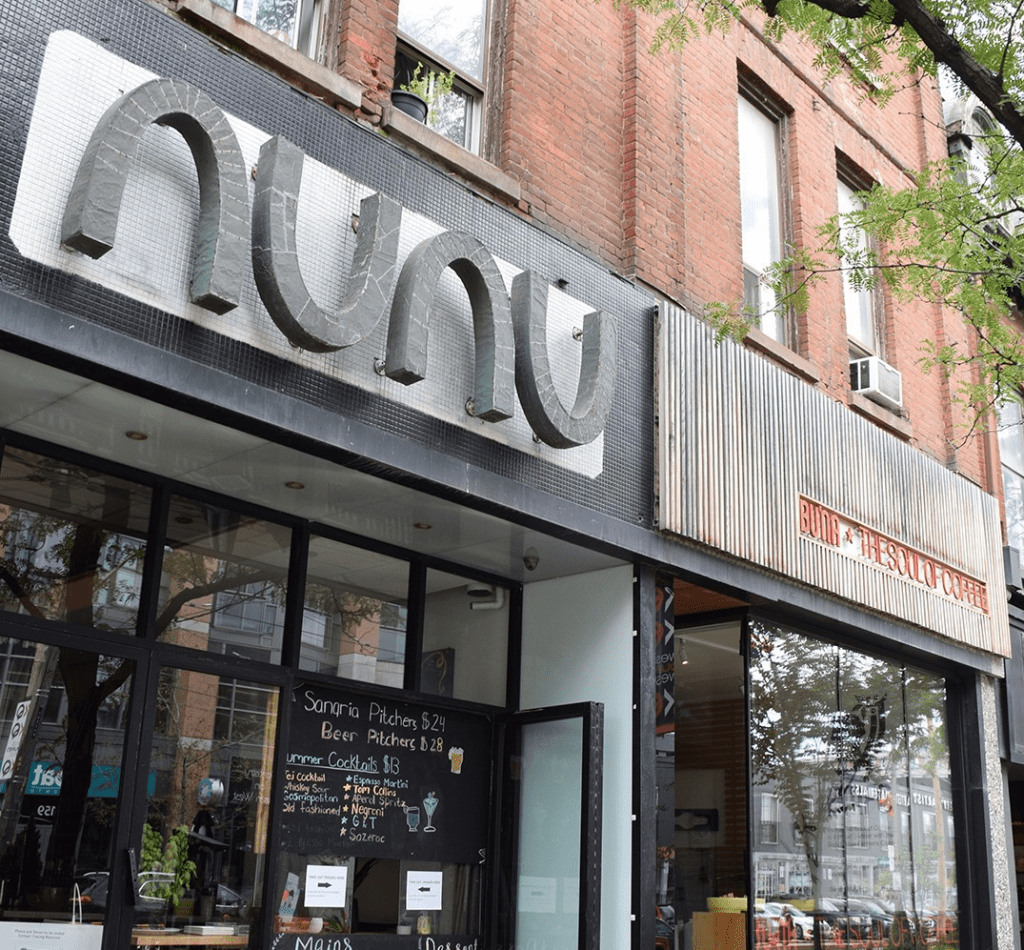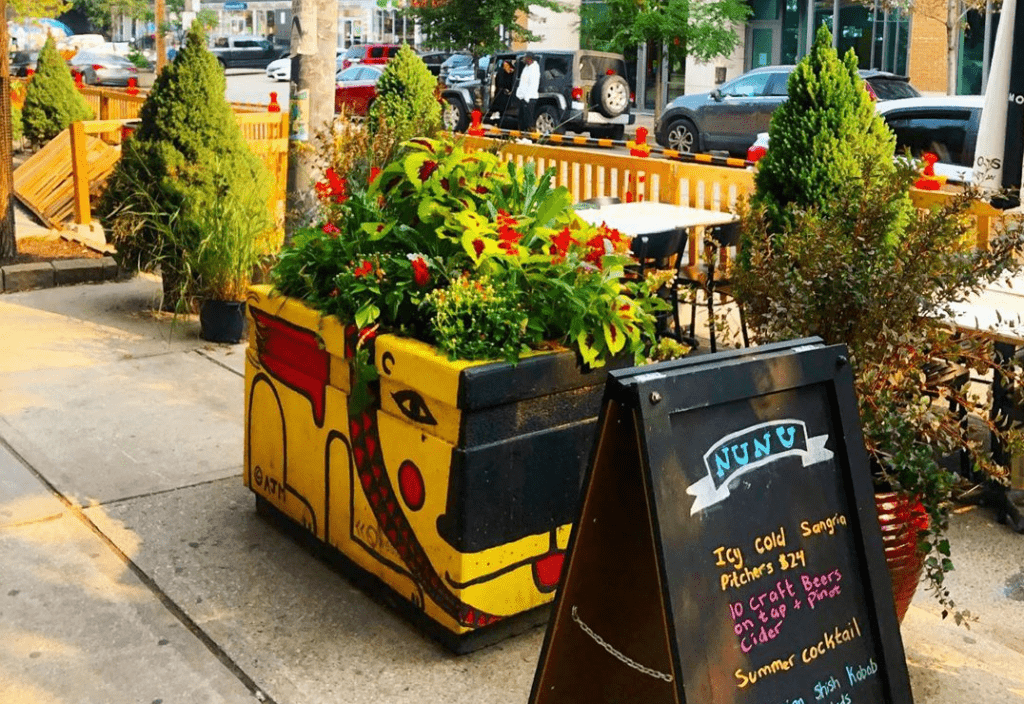Chef and Restaurateur Nunu Rampen Takes a Realistic Look at the Foodservice Landscape in Order to Make Changes for the Future
All photos via Instagram
In speaking with Nunu Rampen, owner and chef of Toronto’s Nunu Ethiopian Fusion restaurant, one thing she says in regards to the pandemic fallout jumps out: “I may be jaded but I suspect the shakeout from the pandemic will be that fast-food chains and marijuana dispensaries will survive and the majority of sit down restaurants and retail will die. It doesn’t paint a pretty picture of what our cities will look like and why a tourist would want to come to Toronto.”
It’s a tough pill to swallow, though a necessary one as we begin to think about what our cities will look like six months from now. Nunu’s point demonstrates the far-reaching arm of restaurants; tourism, construction, agriculture – all of these major industries are affected by the great loss of our restaurants. It’s a call to action for not just the industry at wide, but consumers, and our government.
From an outsider consumer perspective, seeing full patios can be misleading. “…we had to close for the duration of the quarantine. We tried takeout during that period and it did not frankly work. We have since opened up for patio dining and takeout. It has been very uneven – some days we are at pre-pandemic levels, other days it has been dead,” explains Rampen.
Adding to this, the Nunu team hasn’t been able to take full advantage of many of the existing government support programs. “We are in the process of applying for Rent Relief with our landlord, small business loans, and the Digital Main Street program, however, the system is very bureaucratic and slow to respond,” Rampen elaborates.

Fortunately, Nunu did participate in the CafeTO program to a degree of success. “…in fact, it showed the possibility for being the critical lifesaver for this business,” says Rampen. “I think that we created one of the best patios in Toronto and we had very positive feedback from all who walked by. It is somewhat diminished now because the city insisted that we remove some of the key features.”
While the outdoor patio has been a benefit to the restaurant, it’s clear this is not a cure-all. “It has not been as busy as we had hoped and this is not really the City’s fault – this is in part due to the weather but also I think a general lack of disposable income.”
When asked what support she believes restaurants need to see now, Rampen explains,” I sincerely hope the City of Toronto gets its act together and creates a better program that is more agile, engages small restaurants as equal and valuable partners and is more communicative with the stakeholders.”
At this difficult time, as operators face looming rental payments, and increased health and safety expenses, the last thing restaurateurs need is to deal with challenging paperwork, red tape, and a lack of support. Though, from Rampen’s perspective, this is exactly what operators are dealing with. “I have applied for business licenses [all over the world] and it was all done in minutes online. Why does this process have to be so painful and problematic [in Ontario]?”

“Simple things like filling out forms on the internet are a job in itself and often a catch-22 situation with no assistance available. I am considering the wage subsidy program but our neighbour required the input of three separate accountants and had to wait three months to get the first cheque.”
Rampen also identifies the 2010 moratorium on new restaurants and bars on Ossington St. (in downtown Toronto) as another example of the disconnect between government and foodservice. “They have no idea of the financial burden they cause. They delayed our opening by four months for what were minor issues – I would like to say that we are the exception but sadly we aren’t.”
Rampen specifies again the need for agility: “Once legislation is passed at the City it becomes gospel and it is never reopened, re-examined and tweaked as necessary. This is a major failing of the City.”
Rampen understands that the government is trying, as admittedly, “we are in new territory here.” The fear for Rampen is that independent restaurants like hers will be left out of government plans. “It is much simpler and cost-effective from the government’s perspective to deal with [large chains].” She uses the example of the Temporary Workers Program which “became so bureaucratic that the only organizations that could handle the paperwork were the big banks.”
Facing months of operating at reduced capacity, after months of a significantly reduced revenue or none at all, restaurants need support to reopen, rehire, and do their part to rebuild the economy and revive neighbourhoods.
Rampen elaborates: “Our main problems in the past have been in dealing with certain departments in the City of Toronto that do not get that we are a business and need to generate cash flow to keep going.”
According to Restaurants Canada, restaurants are potentially facing 17 to 35 months until a positive cash flow. Rampen states a sad reality: “I don’t think the City of Toronto fully understands the gravity of the situation…”

This is all not to say that the foodservice industry is doomed, but rather to provide a realistic and stark look at the current landscape to understand how it can be repaired. Despite the challenges restaurants are facing, 92 per cent of Canadians agree that restaurants are an important part of their community.
Since the start of the pandemic, restaurant operators have quickly and effectively adapted to evolving public health guidance so that they can continue to serve their communities while ensuring the health and safety of staff and customers and they can be trusted to continue to do so as we head into the colder months ahead. 87 per cent of Canadians say that restaurants are doing a good job of keeping customers safe.
As we move into the winter months, banding together to support restaurants will become increasingly important. When restaurants thrive, communities do as well.
For more information on what expenses restaurants across Canada are facing, the rocky road to recovery, and what you can do to help, head over to Feeding the Recovery by Restaurants Canada.









